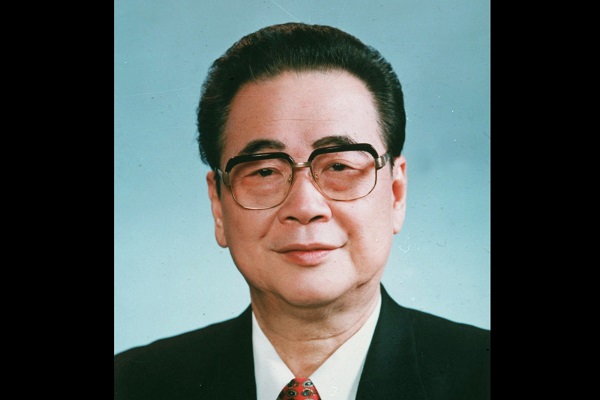Beijing, Former Chinese Prime Minister Li Peng, infamous for his role in the 1989 Tiananmen Square massacre, has died, China’s state media announced on Tuesday.
Li, 91, passed away on Monday in Beijing from an unspecified illness, Xinhua news agency reported.
He served in several top positions in China in the 1980s and 1990s and was the Premier between 1987 and 1998. But he was best known as the “Butcher of Beijing” for his role in the Tiananmen Square crackdown on pro-democracy protesters during which he ordered the military to forcibly clear them with approval from then President Deng Xiaoping.
The subsequent crackdown led to an unknown number of deaths, although some sources have put the figure at over 1,000.
He later defended his actions as a “necessary” step. It is said that Li strongly supported ending the civil protests by any means, considering them a serious threat to the survival of the regime.
That led to him clashing with the pro-reform section of the Communist Party of China, led by then General Secretary Zhao Ziyang.
Li’s proposal for the iron fist prevailed in the internal debate and resulted in the declaration of martial law in Beijing, military intervention and the violent repression of protests along with Zhao’s fall from grace.
Li’s obituary in the Chinese state media begins with the different organs of the CPC announcing, with “great sorrow”, the death of “an excellent member” of the party, a “real communist fighter”, and distinguished leader of the Party and State.
In its obituary, Xinhua news agency said that Li “took decisive measures to stop the unrest and quell counter-revolutionary violence” during the Tiananmen protests.
China has consistently censored the massacre for the last three decades and avoids making a reference to any atrocities that occurred during it.
The Tiananmen Square crackdown was not mentioned in Li’s autobiography, published in 2014, as it only covered the period up to 1983, the year when he took charge as the vice premier.
After his stint as the Premier, Li held the post of the Chairman of the Standing Committee of the National People’s Congress, the highest legislative body in the country, until 2003.
The obituary said his death was a great loss for the CPC and the country.










